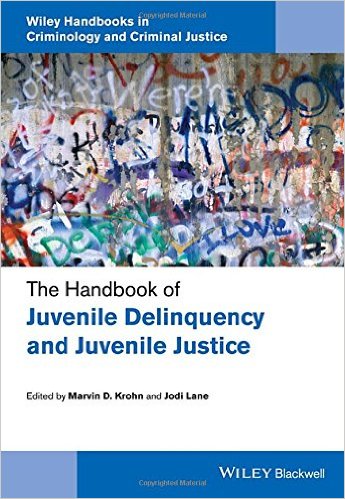 The Handbook of Juvenile Delinquency and Juvenile Justice
The Handbook of Juvenile Delinquency and Juvenile Justice
Edited by Marvin D. Krohn and Jodi Lane
John Wiley & Sons, Inc., 2015
620 pages
The title and cover of this book immediately sparked my interest, since I had practiced law in the juvenile justice court systems across Georgia as a defense attorney and state prosecutor for almost 20 years. I have become somewhat of an expert in the practice of juvenile law, having worked in a juvenile system that saw numerous overhauls in the procedural and substantive laws affecting the treatment of juveniles in Georgia.
However, this book surpassed my first impression. The contributing authors wrote an in-depth study of the legal and social issues of juvenile delinquency, how communities around the world treat and care for their youths and the many efforts employed to rehabilitate juveniles.
It outlines a novel and innovative approach to the status and health of the juvenile delinquency and justice system in the United States and throughout the world. Many communities place the emphasis on treatment and rehabilitation of the juvenile delinquent, while others emphasize detention of youths to control and discourage crime.
It is a valuable resource for those interested in the study of the theoretical causes of juvenile delinquency and a look into how global communities value its youth. The data collected, in this regard, stretches globally, not just within the United States.
I believe lawmakers, more than instructors of students, would benefit from this resource. Many of our laws are influenced by laws elsewhere. Therefore, the statistics and research data could be useful in developing legislature and programs to assist in juvenile rehabilitation. It is apparent that many hours of research and investigation were involved in this extensive project.
Contributing to this Handbook are 54 learned and well-respected professionals in various fields, including psychology, sociology, criminology and criminal justice, law and international studies programs.
However, I believe this handbook is best suited as a reference book for those specifically interested in research or policy guidance, and not for use as a textbook to teach juvenile law or a tool for practicing juvenile attorneys.
Bess L. Walthour is a “semi-retired” private attorney who teaches criminal justice at Kennesaw State University.
More related articles:
Attorneys Need to Be Alert to Youth Who May Be Put in Solitary